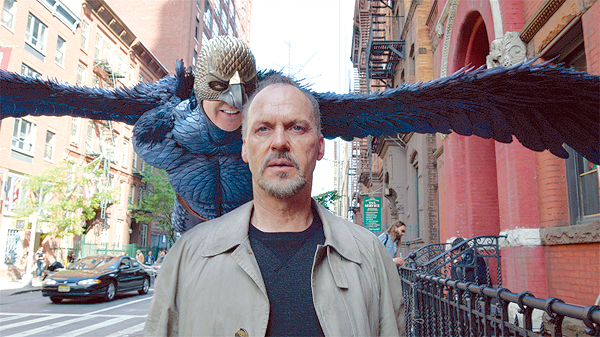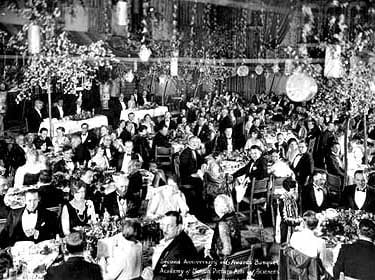Roger Ebert died last April after a ten year co-existence with thyroid cancer. I remember exactly where I was when I heard the news, a Shoney’s somewhere in Tennessee. One of the televisions was broadcasting a soccer game; the other was showing CNN, and that’s where I saw that my favorite film critic had passed. 
I remember where I was for the same reason I remember where I was when I read my first Ebert review. Like a true millennial, my first exposure to Ebert was online. I remember his section at the Chicago Sun Times website back when his name was just a backslash at the end of the paper’s website: sun-times.com/ebert. That site looked like other newspaper websites around 2000-2001: lots of basic HTML and no paywalls. I read Ebert at first out of curiosity at what made him so much more revered (at least I thought) than other film critics. The benefit of finding the website was that I suddenly had access to hundreds of Roger’s reviews spanning not years, but decades.
So I read. And read. And read some more. I read obsessively, reading reviews of movies I knew I would never watch and didn’t particularly care to either. I read Roger Ebert’s movie reviews not because I wanted to know what he said about the movies, but because I wanted to know what he said. I wanted to read his paragraphs, ponder his sentences, get thrilled by a particularly cutting jeer or transcendent praise. I wanted to see this writer in his craft; he could have been talking about pottery for all I cared. This man used words the way artists used colors and musicians used strings.
I did something at one point that maybe only the fellow vain will really understand. I would save the webpages of Ebert’s reviews and open them up on my hard drive to edit them. I replaced Roger’s name with my name and replaced his title and text with my own. After I finished, I would be looking at a perfect imitation of a professional movie review on a professional site, complete with bright yellow stars (1 to four). Obviously I was doing what many young boys do: Trying to look and sound (to myself most of all) like those I admired. But now, 15 or so years later and looking back, I realize I was doing something else. I was trying to catch Ebert’s gifts by osmosis. I figured if my words looked like his, they would eventually sound like his.
And that, more than anything else, began my pursuit of writing.
It didn’t take long for that phase to give way to a new one. I could retain my apathy about the movies he reviewed only for so long. I started watching movies that my family and friends had never heard about. I also started thinking and talking about them differently. When I was 13 and Star Wars Episode II hit theaters, I was engrossed and obsessed with it. It elevated me in my imagination. When I was 14 I saw Seabiscuit in the theaters and was also elevated, but by reading Roger Ebert, I knew that the two elevations were not the same (later on Ebert would teach me that being elevated by a film is neither a sign of its greatness nor of my inattention; elevation is elevation). At 13 I was responding not to a movie but to a universe, to an idea. By 14, during Seabiscuit, I was responding to the movie itself. Thus began my interest in film criticism. I wanted to understand why certain films moved me and others did not. I wanted to know the science behind it, the objective logic that sustained the concept of taste.
I soon learned about the raw ingredients of the movie. The director imposed his vision upon the story. What the movie said was the responsibility of the writers, but how it said it was the responsibility of the directors. I began a mini catalog of movies, even purchasing an enormously dense paperback entitled something like “Video and DVD Guide 2005.” I poured over its pages and even memorized sections. I sought out foreign films and old films and the new films that no one was talking about. And of course, whenever I planned a trip to the Showcase Cinema Stonybrook, I logged onto Ebert.
Sadly my interest in film criticism never took me beyond the basics. I still review movies whenever I can. It’s not that I have fallen out of love with film, only that I have fallen out of love with film culture. I won’t defend that, or pretend to be seriously grieved by it. It’s just reality. “Life itself,” as Roger might say.
The reason Roger Ebert’s criticism was so intoxicating to me was that his writing occupied the space between my friend’s word of mouth recommendation of the new blockbuster and the dusty, academic film critic who thought every movie needed to be more French. To this day I have never read a critic who could better tap into the head of the average moviegoer and the notebook of the esteemed professor than Roger Ebert. If you can think of a movie that you and your friends love but you suspect critics hate, look up Ebert’s review. You’ll see what I mean.
That’s not to say Ebert lacked discernment. His best reviews, in my opinion, are his most scathing. The two kinds of cinema that Ebert seemed to reserve his most lethal verbal volleys for were bad comedies and bad horror. He wrote a famous review of a Rob Schneider film that ended with this eventual book title: “Mr. Schneider, your movie sucks.” Ebert’s patience was thin for filmmakers who trespassed on the sensibilities of their audiences. I think that might be what sets Ebert apart in my mind. He did not praise a film merely for being unique. He knew that, in criticism, unique is a better adverb than adjective. A movie should be uniquely…joyful. Or fervent. Or smart. Just unique? That won’t do.
I love Roger Ebert because he was a writer who knew films, not a film buff who just happened to write. It was not Ebert’s knowledge of film that inspired me, but his words. Ebert frequently wrote about films that “elevated” him. Yet it was Roger himself who elevated the medium of film criticism. That’s why I read him then, and that’s why I read him now.
A new documentary about Roger is releasing this summer. I will write up a review when I can see the movie. It is based on his memoir, Life Itself, and features many conversations with Roger’s professional and personal friends. The initial feedback has been extremely positive and I cannot wait to view it.











